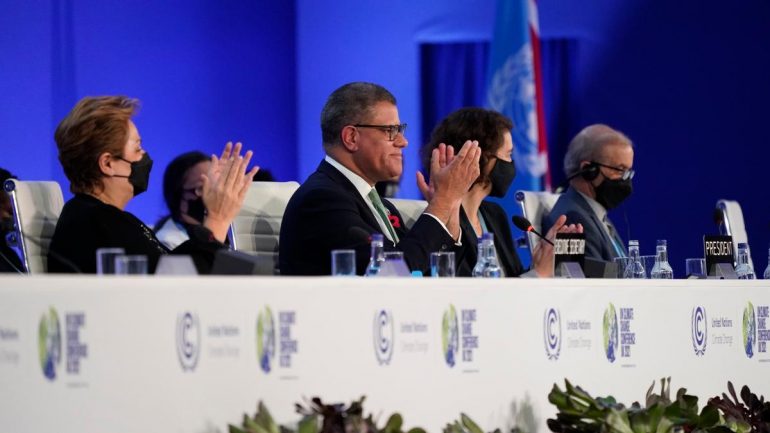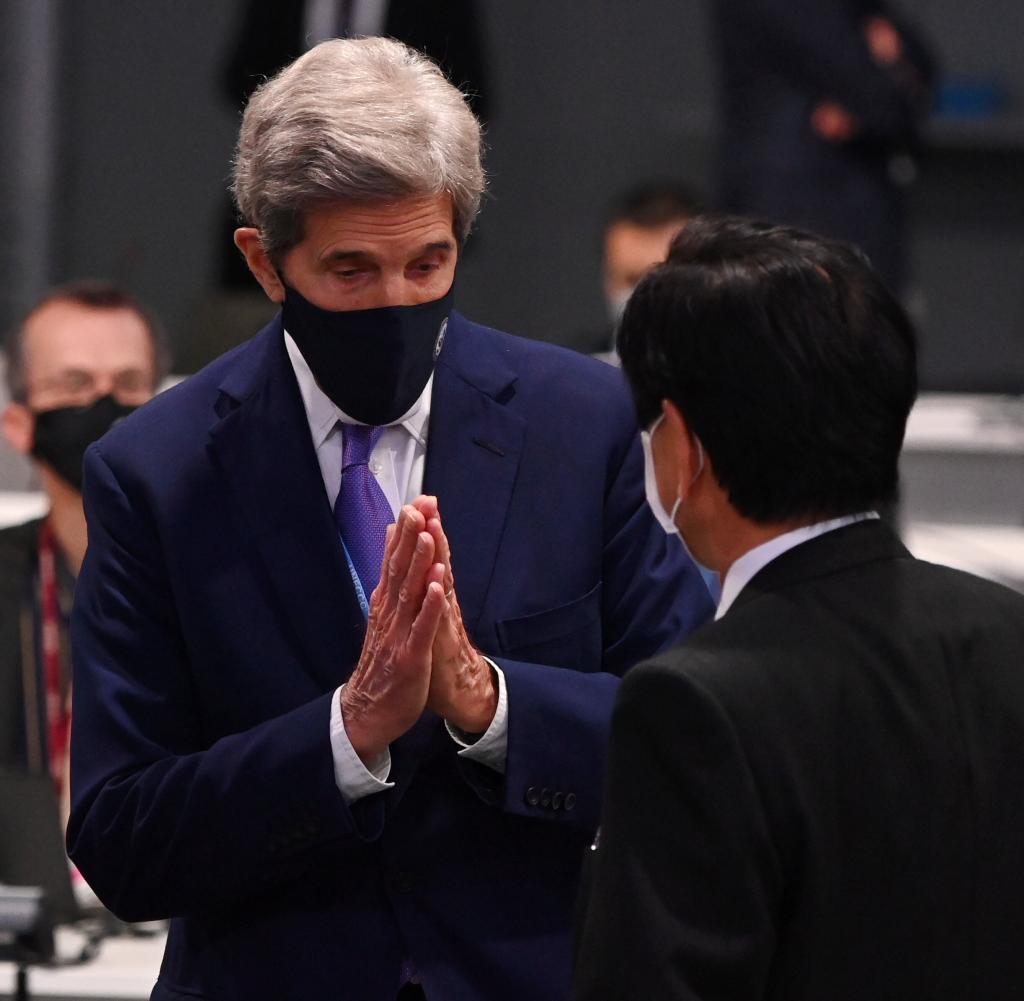DThe “Glasgow Climate Pact”, which was approved on Saturday evening after passionate discussions, calls not only to phase out coal, but also to end “inefficient” subsidies for oil, gas and coal. invokes. However, the wording was weakened at the last minute under pressure from China and India.
The German Environment Minister Svenja Schultz (SPD) still praised the deal. “The fossil age is coming to an end, the energy transition is becoming a model around the world,” she said. US Climate Commissioner John Kerry said the supposedly perfect should never stand in the way of the good in negotiations. “And that’s good.”
On the other hand, the world’s most famous climate activist Greta Thunberg struck a disastrous balance of summits, also known as COP26. “COP26 is over. Here’s a quick summary: blah, blah, blah,” tweeted Sweden. She took to the streets halfway from the summit with thousands of protesters and then left.
UN Secretary-General Antonio Guterres expressed his disenchantment at this. “It’s an important step, but it’s not enough. It’s time to go into emergency mode.”
The massive convention, with 40,000 registered participants, was scheduled to end on Friday, but was pushed to late Saturday due to hours of debate.
The most important resolutions at a glance:
– Say goodbye to coal
In the plenum, EU commissioner Frans Timmermann fully reined in his dismay that pressure from China and India has weakened demand for an exit from coal. Instead of a phase-out, pressure from heavily coal-dependent countries China and India is now only a step-by-step step-down. This leaves an open question whether the two states will ever want to completely abandon coal-based power.
When several states complained about water shortage shortly before the final vote, British COP26 president Alok Sharma shed tears. “I beg your pardon for the way it went,” said the host. He added: “It is also of fundamental importance that we protect this package.” Federal Environment Minister Schulz agreed with him, saying that “something truly world-changing” had been successful with the decision on coal.
– Commitment to the 1.5 degree goal
In the final declaration, the countries jointly committed themselves to the goal of stopping global warming by 1.5 degrees compared to the pre-industrial era. To this end, they have to accelerate their hitherto inadequate climate protection plans for this decade by the end of 2022. That is, three years earlier than the earlier plan. The declaration also said that global emissions of climate-damaging greenhouse gases should drop by 45 percent this decade if the 1.5-degree limit is to be achieved.
– Aid for poor countries
More financial aid was also promised for poor countries to help them adapt to the deadly consequences of the climate crisis in many places. Millions of people are already facing droughts, heat waves, hurricanes and floods as global warming intensifies. Notably, this financial aid is to be doubled by 2025, from around US$20 billion (approximately 35 billion euros) at present.
– Assistance after climate damage
For the first time, the long-standing demand by poor countries to set up money pots to aid in the event of damage and loss has been taken up. It refers to the destruction or forced resettlement after a drought, storm or hurricane. States have been asked to give money for this. However, no concrete amount has been given for this. Only “technical support” should be available after damaging events, but not full damages paid.
Oxfam climate expert Jan Kowalzig called it “bitter that once again the poor countries of the Global South, particularly those badly hit by the climate crisis, were marginalised”. Development Minister Gerd Müller (CSU) assessed it exactly the same way: “From the point of view of developing countries, the results are absolutely inadequate, too fragmented and too slow,” he told the Funke media group.
– The complete rule book for the Paris Agreement
Jochen Flasbarth, Secretary of State for the Environment, praised the proposals on the so-called rulebook of the Paris climate accord, where points had been open for years. From the very beginning, it aimed to get rid of “the wreckage of legal negotiations”. “It all worked out,” Flasbarth said. For example, it was regulated that future climate protection goals should be presented for five years and reported according to the same standards. There was also agreement on the question of how emissions can be cut between countries in the future. According to Flasbarth, it has been successful in plugging up the flaws.
A heated debate that lasted for hours had postponed the deliberations on Saturday. Politicians stood together, talking and discussing in wild gestures. Timmerman eventually implored the delegates: “I beg you, accept this lesson.”
After Glasgow, Greenpeace boss Kaiser now sees the planned Traffic Light Coalition in the federal government obliged to take immediate measures. “Phase-out of coal by 2030 is imperative. To this day, our tax money can no longer be used for coal, oil and gas.”
The next summit, COP27, will take place in Egypt in November 2022.

Introvert. Proud beer specialist. Coffee geek. Typical thinker. Pop culture trailblazer. Music practitioner. Explorer.








